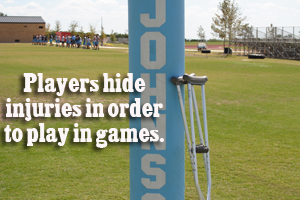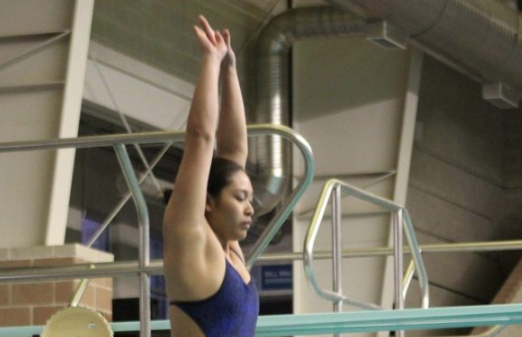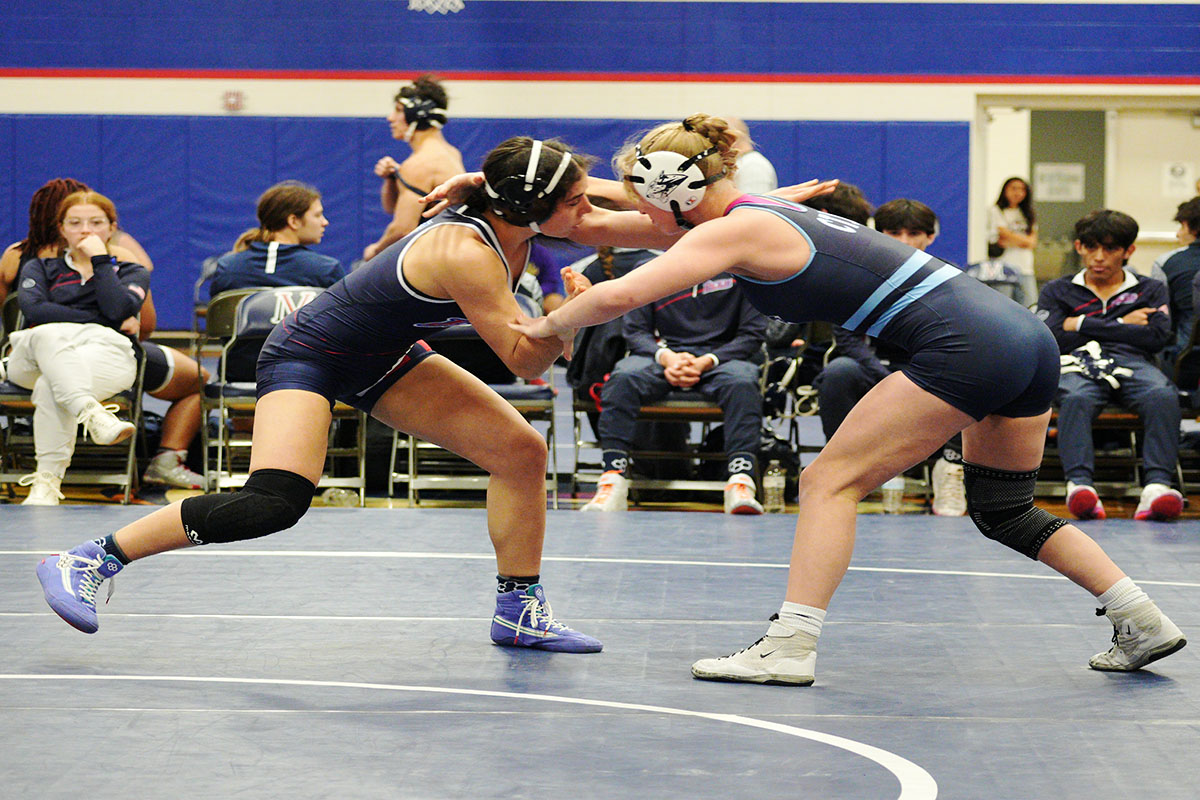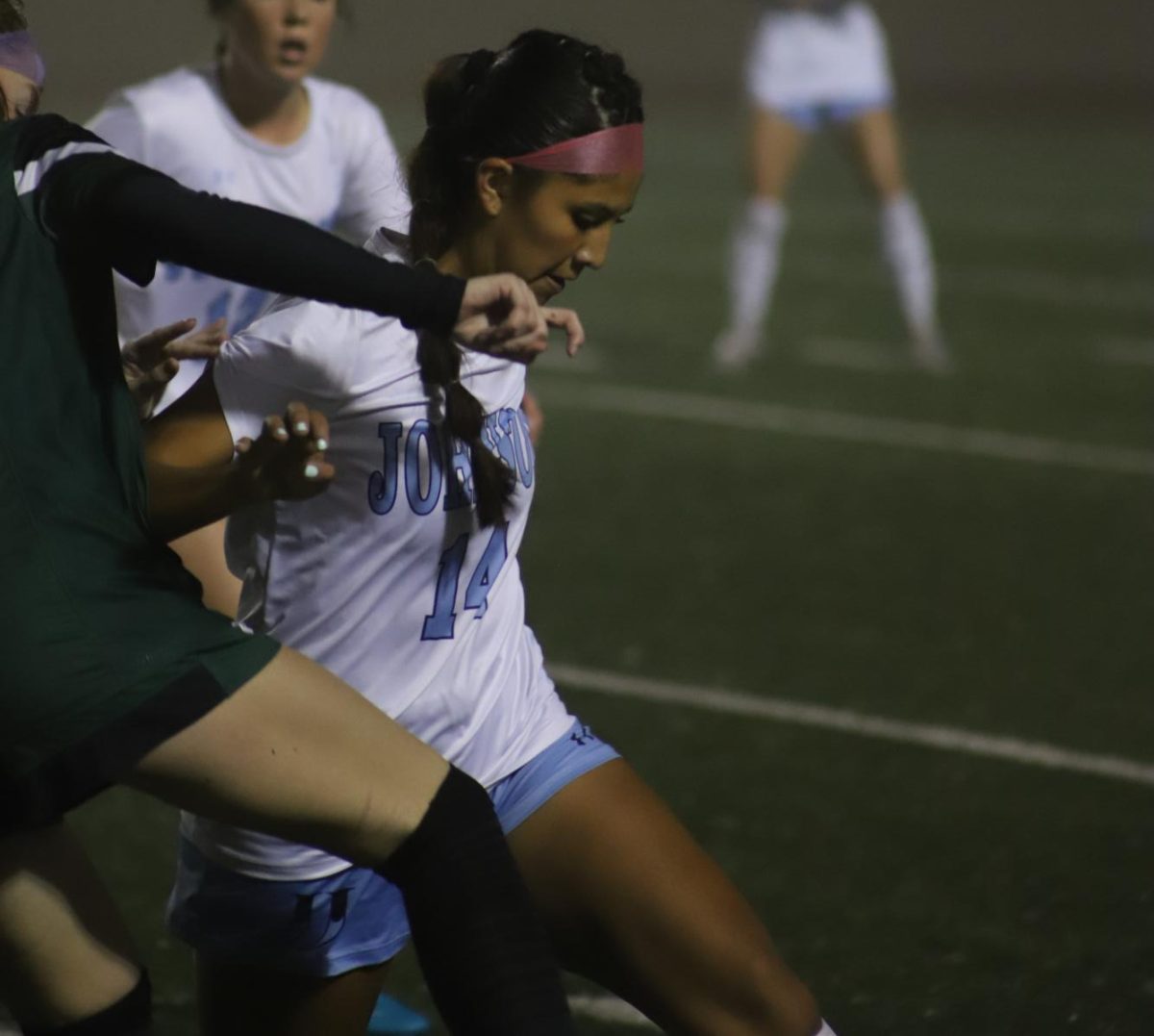by Ali Valdez | Staff Writer
Win or lose, rain or shine, injured or not injured? A trending issue occurring among athletes is the tendency of players to not inform their coaches about minor injuries or pains. Eventually, these minor injuries can result in major breaks, surgeries, or the consequence of having to sit on the sidelines and watch all of the other teammates play.
“In eighth grade, I hurt my knee and I didn’t think it was anything, so I didn’t tell my coach. Then it gradually became worse, and I ended up having to have surgery on my ACL, because I tore it three times,” junior basketball player Meagan Ramirez said.
When an athlete plays with an injury, he or she accepts the risk of increasing the severity of the situation they are in.
“I’ve played through injuries. I’ve played with a broken hand, a pinched nerve in my neck, torn ligaments in my wrists, and two sprained ankles at the same time,” senior football player Adam Weinzetl said.
The puzzling question is: Why would athletes put themselves in a situation that could potentially harm them?
“I thought it was just a sprain but it turned out to be broken. I should have taken better care of myself and iced it all the time and taped it,” Weinzetl said.
Athletes occasionally mistake their major injury for a minor one which is part of the reason why players hold back from coaches.
“Basically, I broke my ankle during two-a-days, but it wasn’t a bad break. Then, after playing a few scrimmages, it became a bad break because I got blocked in the back,” Weinzetl said. “I had to get surgery and screws in my ankle and I was sidelined for a long time.”
Athletes can get so caught up in love for the game they play that they don’t realize the choices they make have harsh and painful consequences.
“If I had told my coach earlier that it was a small break, I would have sat out for a few weeks and not played; but I opted to play anyway, and so I lost more weeks because it got broken worse,” Weinzetl said.
When players have a small injury that only bothers them occasionally, they may not tell their coaches- or sometimes even their family- because they are afraid of disappointment.
“I didn’t tell them because I didn’t want to be stuck not playing, and I didn’t want it to be constantly brought up or sound like a wimp,” sophomore Morgan Parker said.
Athletes are trained to push themselves, even if it means going beyond their limits.
“My lower back started hurting me, and it kept progressing every week, and then it got to a point where I couldn’t play anymore. I had to get an MRI and x-rays. When I couldn’t play anymore because of the pain, I decided to tell my coaches,” Parker said.
These silly and senseless errors can burden an athlete with lifelong consequences that one might someday look back on and regret.
“I have a herniated disk, so now I have to do rehab for the rest of my life. If I could rewind time I would tell my coaches when it started hurting,” Parker said.








